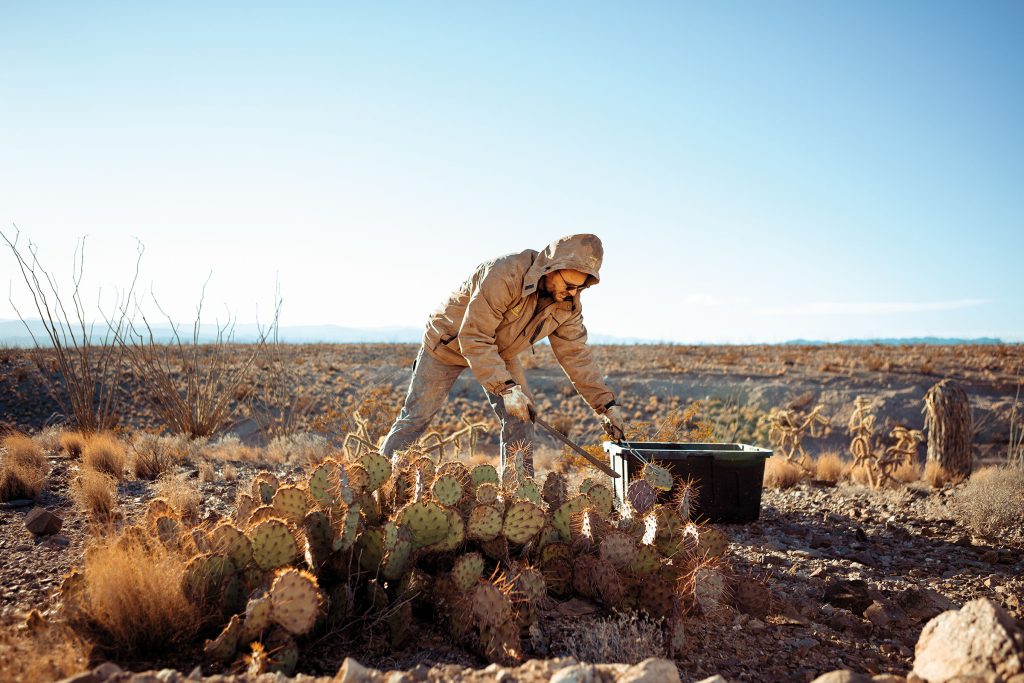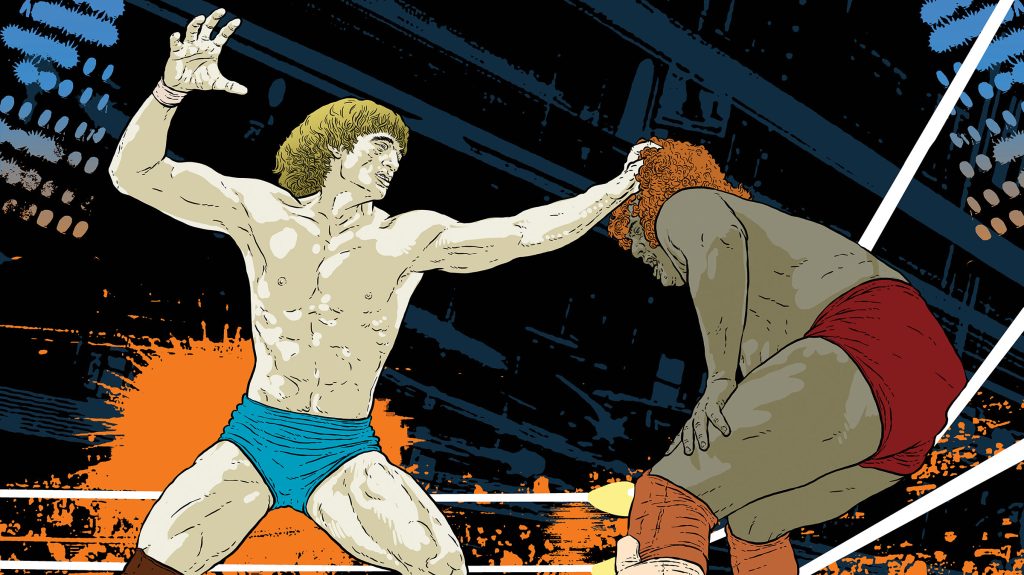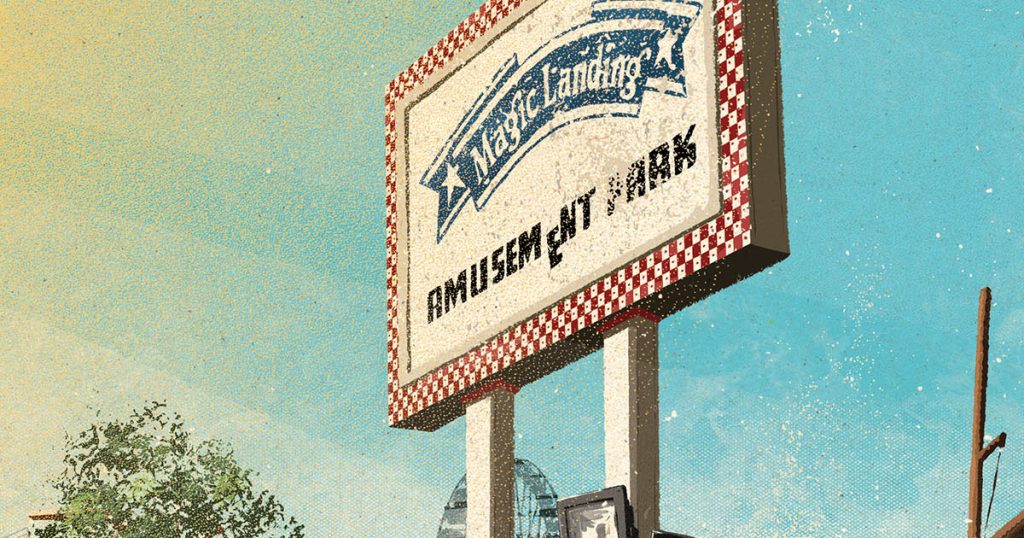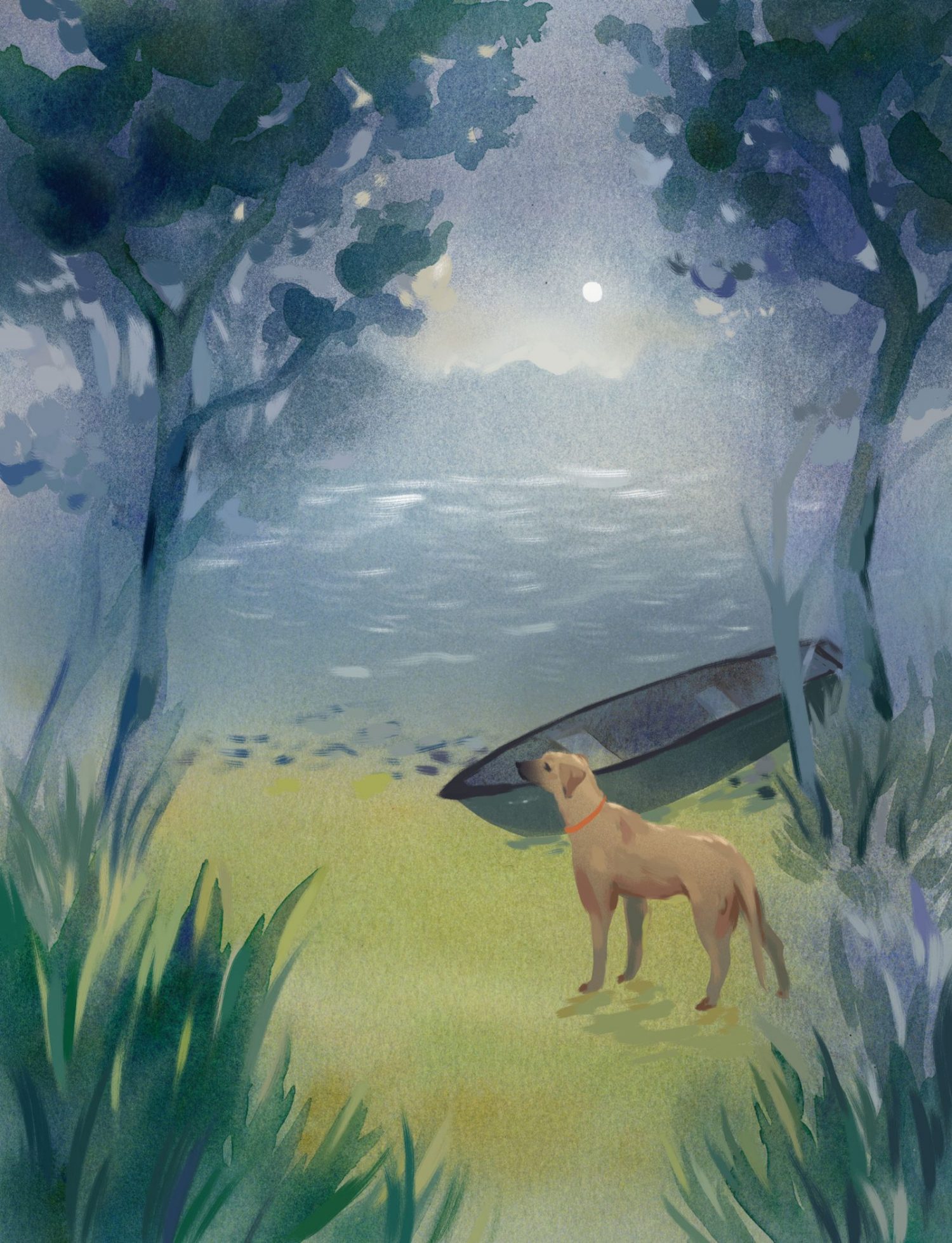
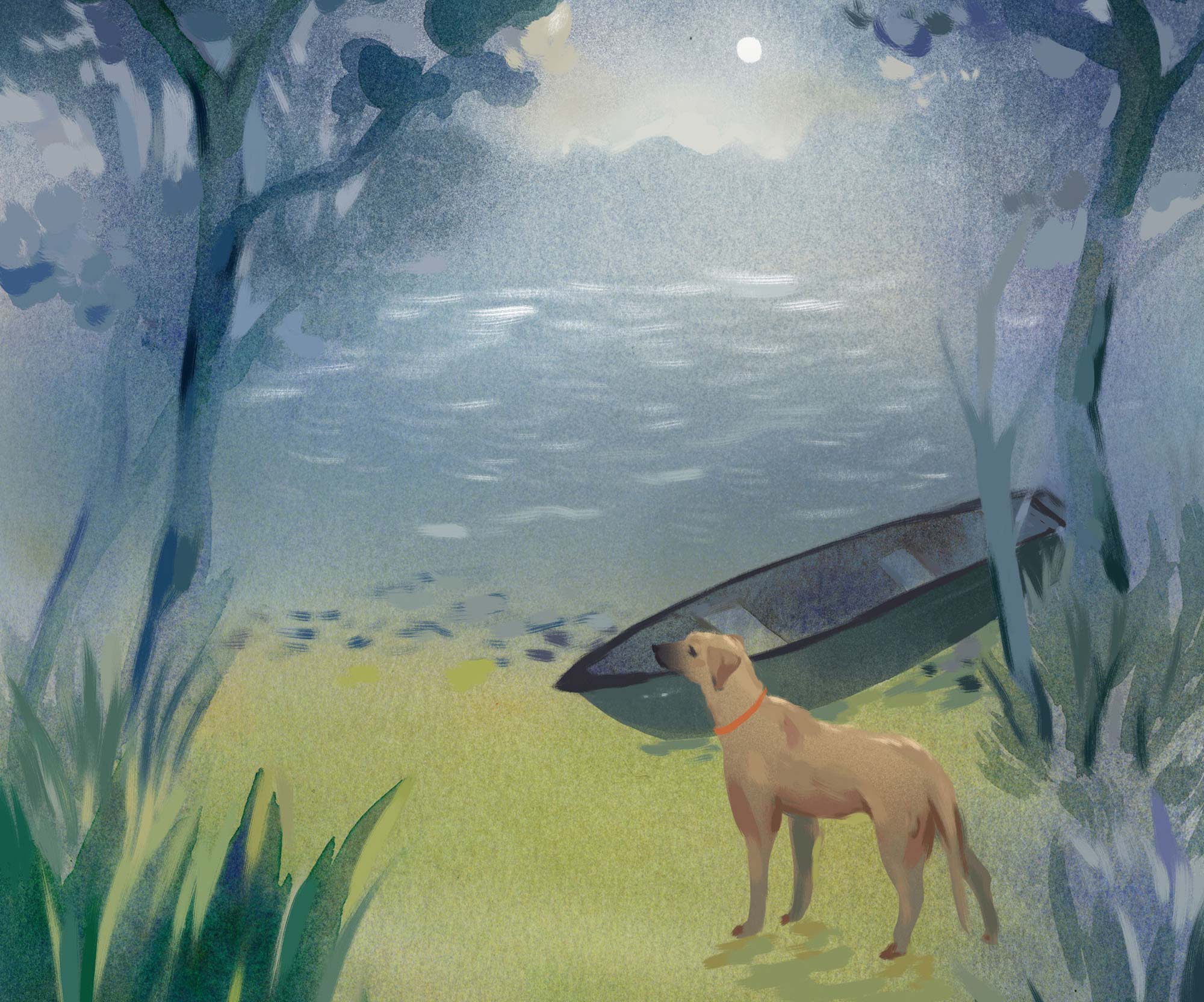
When I moved away from the Piney Woods, my old canoe stayed behind. Years passed before I came back to fetch it last spring. To my consternation, the canoe had been flipped upright and was filled to the brim with a slurry of fallen leaves and rainwater.
The standing water, I soon realized, was not such a bad sign: no leaks. I dumped out the canoe and drug it off the back porch of a lakefront shack my brother owns about halfway between Tyler and Longview, a semirural patch of East Texas where everyone in my family, besides me, still lives. From the hull, I mucked out the wet leaf compost. Then I hoisted the length of wobbly green plastic onto the roof of my Honda and headed south, through the pines and over the Sabine River.
Described by East Texas author Joe R. Lansdale as “a brown run of water that twists its way along dirty banks, underneath lean-over trees and all their shadows,” the Sabine River wends through the low places of my home country. It slows and slowly widens as it approaches the Louisiana line and Toledo Bend Reservoir, the largest manmade lake in the South. I had spent time on this stretch of river a decade earlier, getting to know the people who camp along its banks, out of sight from the rest of us. The king of these river folk was a semi-reformed outlaw named Danny Tidwell.
Danny lived on a small, unnamed island of the Sabine with his wife, Marcia Tidwell, and their chickens, turkeys, doves, cats, and dogs. The island had no running water or electricity, but the Tidwells didn’t seem to mind. Danny hunted deer and squirrel, and his trotlines hooked more channel cats than they could eat. Each spring, they planted a garden by the phases of the moon, and Marcia canned their home-grown produce to carry them through the next winter.
Plenty of rural Southerners lived as the Tidwells did a century ago, but I had never met anyone like them. It wasn’t as if they didn’t have other options: Danny and Marcia owned two modest houses on higher ground. One sat a few miles up the road from their nearest boat ramp, at the Swede Johnson Recreation Area, across the Sabine from Louisiana.
People didn’t hassle Danny as much on the island. “All I’ve wanted is to be down here on this river and be left alone,” he used to say. “To me it’s good down here to sit and listen to nothing.” In the evenings he carried on conversations with barred owls, man and bird hooting and caterwauling into the dark.
When I met them, Danny and Marcia were lovey-dovey newlyweds. They’d met in a fishing camp and began to exchange letters after Marcia’s first husband died. Word along the river (and among the game wardens) was that Marcia was “real respectable” and had cleaned Danny up. Once a week, they even left the river to check their mail and bathe.
“You take your shower,” Danny would tell Marcia. “I’ll skip mine.”
“Oh no you won’t!” Marcia would reply. “I’ll throw you in that river and chunk a bar of soap after you.”
As we ran trotlines, hunted, and talked on the Sabine’s banks, Danny and Marcia’s rustic freedom enthralled me. Feeling boxed in by my 9-to-5, with no clear path toward a life I wanted, I’d recently quit my job to write and roam, a decision that left me in financial straits. My friends were married and having kids, but I seemed to be heading in the opposite direction. The river, the woods, the island—there, the world came closer to making sense. Like some redneck Thoreau, I dreamed of establishing my own camp on an island downstream from the Tidwells—a dream that faded when I bowed to necessity and took a job in a distant town.
Now, for the first time in seven years, I was coming back. On assignment for this magazine (“The Isles of Texas,” November 2018), I planned to camp not at the Tidwells’ island but 8 miles downriver, where the Sabine merges with the maze of marshes and bayous of Toledo Bend. For a day or two, I would fish and explore Pine Island, one of the largest on the lake, where Danny and Marcia had kept a deer camp hidden in dense forest.
Upon arrival at Toledo Bend, I stopped at the home of Tam and Billy Hearnsberger, sheep ranchers who’d arranged for me to leave my car on a neighbor’s lakeshore. “Camping out there on an island all by yourself?” Billy said. “Gosh, I don’t think I would enjoy that. You are aware we have snakes, right?”
The Hearnsbergers drove their pickup truck as they led my car through a cow pasture sloping toward the water. Billy offered to help with my canoe, but it was a one-person job. On a slip of paper he jotted down his phone number and the number for the sheriff, and handed it over. “Well, all right,” he said, casting around for a parting word. “I’m gonna mow my grass.”
After Billy and Tam left, it only took a few minutes to pack gear into the canoe: a hammock, bug net, and sleeping bag; one folding chair; a dry bag for snacks and another with a change of clothes; a book; and fishing gear. As I secured my father’s old metal tackle box, I did the math and it occurred to me, not for the first time but with the same surprise, that I’d soon be older than he ever was.
I lugged the canoe down a ramp of dirt and into a narrow branch of Toledo Bend. The lake is huge—65 miles long—but here it curved like an oxbow, a likely remnant of the Sabine before reservoir swallowed river nearly half a century ago. Across the copper-colored water, a wading forest of bald cypress ringed a small island. Just beyond this island, according to Billy, was Pine Island.
The late-afternoon sun warmed me in my shorts and sandals as I paddled toward and through the beautiful stands of cypress, their limbs draped in greenish wisps of Spanish moss. Another island appeared, and I crossed the strait to have a look: Pine Island, with any luck. I scanned for an opening to pull onto shore. The banks were choked with brushy, impenetrable trees. The golden light came at an evening slant, and the water churned as bass began their feeding frenzy. Eventually I came to a huge, double-trunk pine that had fallen into the water. Its needles were limp and brown. When I rounded the tree, I stopped. On the water’s edge, to my surprise, was Danny’s houseboat.
The river, the woods, the island—there the world came closer to making sense.
Danny was 65 when I met him in 2010. He’d run away from home as a teenager and spent most of his life on the Sabine. An illegal fisherman and poacher, he’d been arrested more times than he could count. Hard living and river glare were etched across his face, and his body was scarred from knife fights, most prominently across his left cheek. Two of his fingers were permanently gnarled from the venomous strike of a timber rattler. Danny’s skin also bore evidence of bullet wounds, though he never liked talking about them when I was around. “Aw, you don’t want to hear that old stuff,” he’d say.
By then, Danny had more or less retired from backwoods mischief, but his stories from the wild edge of Texas and Louisiana reminded me of tales from the old Neutral Ground era. From 1806 to 1821, no government ruled this isolated region, so it became a haven for bandits and outlaws. Two centuries later, folks like Danny were evidence that perhaps not much had changed.
When Danny scavenged the houseboat, he dragged it onto Pine Island and lived there off and on for years. He kept a pet hog named Jennifer and often told the story of the winter he was writing his autobiography and she broke in, devouring the handwritten, half-completed manuscript. Jennifer’s semi-domesticated descendants were given free reign of the island—that is, until another East Texan shot the pigs for sport. Danny confronted the man. The law got involved, and someone burned the houseboat down.
All these years later, I could hardly believe the boat was still there. It had been charred and crumbling during my last visit. Now it was a skeletal frame.
The relatively open ground beside the boat frame had potential as a campsite, the first I’d seen that day. As I scouted from my canoe, however, a dog stood and wandered toward the bank, watching me. Her owner was surely nearby. When I began to move on, the dog whimpered, so I turned to have another look. Scrawny, wearing two orange collars, she began to bawl and pace wildly along the bank. As I paddled in her direction, she leaped into the water and swam toward me, then climbed in and raced up the canoe. A large, black tracking device was attached to one of her collars. She frantically scraped the device against the sides of the canoe, trying to free herself. I grabbed the dog and held her still while I pulled it off.
I tried to soothe the panicked dog, then nosed the canoe onto shore and coaxed her to the island she had just escaped. A homely cur of medium size, she had straw-colored fur and a black snout, and like Danny a deep scar ran across her face. Had she swum onto the island? Or did someone dump her? No, she wouldn’t be wearing the collars if no one wanted her. But I saw no I.D. tag on either collar.
It was nearly sunset, too late to do anything else, so I made camp and gathered dry limbs to start a fire, then fed the dog from my stash. She wolfed down a ring of dried sausage and smoked cheddar, followed by one and a half bananas. When she realized I would share no more, she curled up beside the canoe. The fish had stopped biting, so I sat in my chair with my back to the fallen pine and listened to the frogs, cicadas, and other sounds on the water’s edge. A crescent moon rose, a ribbon of its light undulating across the water.
On a night both too warm for a fire and too long to go without, I sat before the flames as thoughts of Marcia and Danny mingled with older and hazier memories that also flowed from the Sabine and its tributaries, particularly the creek below the Lake Gladewater dam. There, my father taught me and my younger brothers to bait our hooks with pieces of earthworm not much smaller than our own fingers. We fished often, from what I remembered, and I could still picture the errant bobbers dangling from tree limbs and the viscera of catfish he cleaned afterward. Once I reached the age of 12 or 13, fishing became more of a solo pursuit, usually in stock tanks, using whatever bait I could find beneath rocks or buzzing through weedy pastures.
Those kinds of memories had largely faded, though, and I mostly thought about my new canine companion—how long had she been on Pine Island? What would I do with her? Calmer now, she didn’t respond to being nuzzled or scratched behind the ears. She kept to herself and only came when I offered food. In the morning, I decided, I would return her to the mainland. Maybe the Hearnsbergers would keep her with their pets until we found her owner.
Without a doubt, Marcia and Danny would have taken her in to live with their eight island dogs: Booger, Hooch, Tad, Rege, Gourd, Sheba, Dook ’n’ Hair, and P.P.
The last time I visited the Tidwells, I brought along S.R. “Robb” Bindler, the director of Hands on a Hardbody, an award-winning documentary about an endurance contest to win a pickup truck in Robb’s hometown, Longview. I grew up nearby and had watched the 1997 documentary on repeat. It taught me to look for the special “human drama thing” that runs through so many East Texas stories.
I wanted Robb to make a documentary about Sabine River folk, the Tidwells in particular. But the magic was gone from the island. Marcia had left a few weeks earlier to care for her brother, who was very sick, leaving Danny to his own devices. He got hold of a jug of whiskey; then he got mean. The camp was a wreck, and there was dog poop everywhere. Worse, a bail bondsman had offered Danny and his friend Goose a bounty to track a Louisiana man who’d skipped bail, fleeing across the Sabine like some outlaw in the old Neutral Ground. Scheming for the reward money and drunker by the minute, Danny’s plans to catch the fugitive took on an ugly character.
I was embarrassed for Danny and for myself, in front of this filmmaker I idolized. Because we had caught a ride in Danny’s boat, Robb and I were stranded until Danny was ready to take us back. And Robb, who’d flown in from L.A. to visit the island on my recommendation, had nothing to do but sit on the dirt and watch the Sabine flow by as we waited for this madman to return us to higher ground.
I didn’t talk to Danny for a while after that. He didn’t know it then, but he had cancer. Earlier he’d told me he intended to die on the banks of the Sabine: “I wanna be thrown in the river to float down the river till the river runs dry.” Instead, Danny and Marcia moved into her small, wooden house outside Henderson, about 60 miles away. He got treatment, got better, then got sick again and died on Feb. 2, 2016, at the age of 71. Danny’s friends met on the riverbank at Swede Johnson. They said a few words and drank a few beers, and left a small cross beside the boat launch. I was unable to attend the service because it fell on the same day as my grandfather’s funeral. Later, when I tried to call Marcia, the number I had no longer worked.
As night descended on Pine Island, I burned through the fallen limbs I had gathered earlier. When the fire died down, the mosquitoes drove me into my hammock, which I’d strung between a couple of trees along the water. I woke the next morning not long after sunrise, and when I looked across the lake, an archipelago of nearby islands was shrouded in haze. The dog was curled on the ground next to my canoe.
She glanced at me as I crawled out of my bug netting but hardly moved until 8 a.m., when the sun burned off the haze and I called her over to eat the last of my provisions. As she twisted her head to take the food from my hand, something shiny on the bottom of her collar caught my eye. I held her still, rotated the collar, and felt like a fool. On a metal tag lying flat against her orange band was a man’s name; the name of a nearby town in Louisiana; and a phone number.
I texted the number. Then I called. No answer. Half an hour later, the owner responded. He knew Pine Island and the fallen pine tree, and he promised to be there in 15 minutes. Soon a johnboat roared across the lake. It pulled onto the bank, and two young men in baseball caps and sleeveless T-shirts stepped onto the island, as did a second dog.
They introduced themselves as Luke, the dog’s owner, and Colby, his hunting buddy. The dog, it turns out, was named Jesse. She was a black mouth cur, a Southern hunting breed Danny had also favored. “We were hunting over here, and she wouldn’t come back,” said Luke, a fresh-faced teen who’d graduated from high school three days earlier. “My tracking collar wouldn’t work,” he explained, “and it was getting dark last night, so I said I’d come back and find her tomorrow.”
From the dog’s behavior, I thought she might have spent days on the island. Instead, she’d been alone for a few hours at most. Luke and Colby had left her right here, at the small clearing by the water.
“This old guy, this used to be his camp,” Colby said.
He was talking about Danny: “He started the hogs on this island,” Colby continued. “From what he told me, he used to live out here, and the pigs would come up to him and he could pet them and stuff because he fed them. There’s some big ones out here.”
Luke and Colby maintained their own camp upriver. The first time Luke took Jesse hunting on the Sabine, he said, she ran 3 miles and was struck by a car, leaving the long scar across her forehead. “I hadn’t really hunted her much in the woods,” Luke said. “They bayed a big hog on the other side in the thicker stuff. She took off over there, and that’s the last time we seen her.”
The boys drove away with their dogs, the boat receding across the blue. With Jesse off my hands, I fished from the bank for a while, then explored the leafy edges of camp. Skirting past a scum-covered bog, I entered a shady forest of tall pines and reedy hardwoods. Not 20 yards from shore, I came to a more secluded place in the woods, and there it hit me: This was Danny and Marcia’s old camp, the one he set up after the houseboat was burned. I had visited the place once before, when we came to fetch a yard rake with a long handle Danny fashioned from a tree limb.
It was so quiet in the forest. Finally, I’d found the solitude that had been eluding me. Now that I had it, though, I didn’t want it. I preferred to remember the Tidwells at their other, more permanent camp, where Marcia had made the island into a home. Back then, I saw Danny as a stray critter Marcia had taken in. But they took me in, too, when I was feeling as stranded and lost as that strange little dog. They nourished me with fried catfish and garden vegetables, hot-water cornbread, and good stories washed down with cups of coffee brewed from the brown run of water beyond the banks.
It was time to leave Pine Island. Back in my canoe for the return trip, with my father’s tackle box secured firmly and the remains of Danny’s houseboat still within my sights, I dipped my paddle into the water and dredged the shallow lake bottom, searching blindly. When Danny had done this seven years earlier, his paddle had found a rope attached to a homemade perch trap hidden underwater. An opening in the wire box let small fish swim in, but not out. Danny hadn’t checked the trap in two months, and I expected the fish to be dead. He snagged the rope, and we hauled the contraption into the boat. The fish weren’t dead, though—far from it. There were dozens of shiners, redear sunfish, and little bluegills of so many colors and sizes. They hopped and skittered, so full of life, gleaming for a moment in the light.

